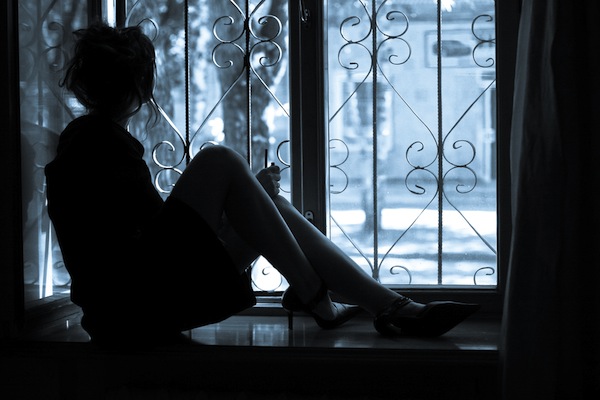
Almost everyone feels down from time to time, but a case of the blues that doesn’t go away might actually be a symptom of a major depressive episode. Depression is a serious condition that if left untreated can become debilitating and even life threatening. Because it’s fairly common, particularly among women, it’s important for everyone to know the warning signs.
Symptoms of depression can be both mental and physical. Diagnosis is made when an individual shows a combination of several of the following symptoms, when these symptoms last longer than two weeks, and when they interfere with relationships, job performance, or the ability to manage daily life tasks.
1.) Depressed mood most or all of the day.
Feelings can include hopelessness, worthlessness, excessive guilt, anger, and/or sadness. These feelings can surface behaviorally as unexplained bouts of crying, emotional hypersensitivity, irritability, defensiveness, or even angry outbursts. In severe depression, patients often report a feeling of numbness, or no feeling at all. These feelings can cause conflict and tension in interpersonal relationships.
2.) Loss of pleasure.
In scientific terms, it’s called anhedonia. Depressed individuals lose their ability to enjoy the things that they once did. As depression progresses, almost nothing brings enjoyment, and with this the desire to do anything—even things you once enjoyed, like favorite hobbies, eating, laughing, or sex—seem to disappear. With an inability to experience pleasure, motivation and desire decrease, sometimes to zero.
3.) Change in appetite.
A sudden loss of interest in eating, or (in atypical depression) an increase in eating, can signal depression. In many cases, individuals who are depressed will experience weight loss or gain, sometimes a noticeable amount in a short period of time. You may find that you have to force yourself to eat, or that you can’t stop—for some, food becomes a way of self-medicating.
4.) Change in sleep habits.
Depression is closely interlinked with sleep, and researchers are still trying to understand this relationship. If you are depressed, you may find that you cannot fall asleep as easily, that you wake frequently or too early, or (in atypical depression) that you sleep too much. You may find it hard to get out of bed and you may feel fatigued or lethargic throughout the day. You may also notice a difference in dreaming, as well, as REM sleep is affected by depression.
5.) Difficulty concentrating.
With depression, you may begin to have trouble focusing your thoughts and making decisions. You may find that you’re less effective at your job, or that it takes you a lot longer to accomplish even simple tasks.
Depression can develop for no known reason or can be triggered by a stressful event, hormonal change, drug or medication, or chronic illness. If left untreated, it can spiral out of control. Individuals with depression can begin to withdraw socially, may be unable to hold a job, and may develop thoughts of death or suicide. If you are experiencing any or all of the warning signs of depression, it’s important to talk about it with a loved one and/or seek professional help as soon as you can.
Depression is often described as a hole—the further you go down, the harder it is to get back out. Fortunately, treatment (therapy and/or medication) is often effective even in the most severe cases. Many people with depression are able to go on after treatment to live happy, productive lives. It’s critical, though, to reach out for help. If you know someone that you think may be depressed, it’s also important to reach out to him or her with support and understanding.
Image Source: Shutterstock














